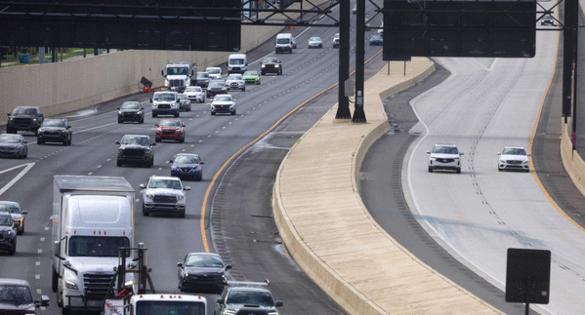Why do Central Florida's super speeders drive 100 mph or more? Here's what they told police
Published in News & Features
ORLANDO, Fla. — Florida’s new “super speeder” law, intended to slow dangerous drivers, has demonstrated that some lead-footed motorists ought to practice their excuses.
Like the guy driving 100-mph-plus through Orange County to make it to a birthday party on time, or the woman who hit 113 on State Road 417 because she was in a hurry to pick up her dog. Then there’s the Apopka man who said he didn’t realize he was going 119 mph because — wait for it — his speedometer was broken.
The law mandates a court appearance and allows officers to jail speeders rather than send them on their way with a ticket.
“A lot of people we pull over are just in shock,” said Trooper Migdalisis Garcia, spokesperson for the Florida Highway Patrol unit headquartered in Orlando that is responsible for motor safety on Interstate 4, Florida’s Turnpike and other state roads in six counties.
Most accused offenders expected a fine, not handcuffs, she said. “Some are like, ‘Wait. What? I’m going to jail now?'”
Since the law went into effect July 1, nearly 100 motorists have been booked into the Orange County jail on the more punitive charge, “dangerous excessive speeding,” for driving 100 mph or faster and in a manner alleged to be reckless or threaten the safety of others.
That’s usually tailgating, weaving in and out of traffic and failing to signal a lane change, a review of arrest reports shows.
Under the new law, anyone convicted of excessive speeding for the first time would be required to pay a $500 fine and/or spend up to 30 days in jail. A second-time offender would have to pay double the fine and/or spend up to 90 days in jail. If violators are convicted a second time within five years, their license would be revoked for 180 days and possibly as long as a year.
Many cited in Orange County are fighting the charge.
“It’s my first time ever in trouble,” said Ethan McArthur, 19. “It was stupid but my driving record’s clean. Shouldn’t that matter?”
He said prosecutors are demanding he serve no less than 10 days behind bars.
“It seems excessive. There are people who get caught selling drugs who don’t go to jail,” McArthur said.
A pool equipment salesman in Polk County, McArthur was arrested in August after an Orange County deputy in an unmarked Dodge Charger used radar to gauge the speed of the vehicle McArthur was driving — also a Charger — at 112 mph in afternoon traffic on State Road 408.
McArthur said he was hurrying to a birthday party and didn’t want to be late. He said he was unaware of the new law.
The deputy alleged McArthur made “rapid and jerky” lane changes, cut in front of other vehicles and zipped past a broken down semi at the side of the toll road without slowing. The arrest report noted that two vehicles honked while passing the deputy’s traffic stop.
“This usually communicates appreciation from other vehicles” for enforcing stopping action, the report said.
McArthur said he doubts he was traveling as fast as the deputy alleged.
“And those people honking were actually my friends driving by and laughing that I got pulled over,” he said.
Although Florida courts have held that excessive speed, by itself, does not constitute reckless driving, excessive speed is a contributing factor in about one of every four traffic fatalities nationwide, according to the Florida Highway Safety and Motor Vehicles.
In 2023, the most recent year for complete state data, the agency reported 38,861 crashes on Florida highways that were categorized as caused by or related to speeding or aggressive driving, resulting in 437 deaths and more than 1,200 “incapacitating” injuries.
Highway speeds of 100 mph or faster are “just fatal speeds,” said Garcia, the FHP spokesperson. “There’s no room for error.”
She said many people offer weak excuses or none at all.
Some had babies in their vehicles.
A 31-year-old man, accused of driving 111 mph, said he was just trying to get home after drinking “a couple of tequila and pineapples” at a company outing with an open bar and spending much of the night walking around Disney Springs playing Pokemon.
A 28-year-old Orlando man who whizzed away from a pack of cars at a traffic signal on South Orange Blossom nearly reached triple-digit speeds before a sheriff’s deputy pulled him. He insisted he wasn’t drag racing — only trying to avoid the speeding car behind him.
Arresting officers, typically driving unmarked vehicles, often had difficulty catching up to speeders, arrest reports show. A 25-year-old driver who was clocked at 120 mph on I-4 near Lake Mary said he thought the arresting trooper in a marked cruiser was trying to race him.
Garcia said she believes the new law is making a difference, though it may still be too soon to know for sure.
“People still speed, but hopefully they’re starting to understand there are serious consequences for it,” she said. “Before when speeding resulted in just getting a citation, offenders didn’t necessarily understand their risks. They maybe thought, ‘Oh, it’s just a little financial burden,’ ” she said. “But now that people are being arrested, vehicles towed and impounded, that’s hopefully changing.”
©2025 Orlando Sentinel. Visit orlandosentinel.com. Distributed by Tribune Content Agency, LLC.







Comments